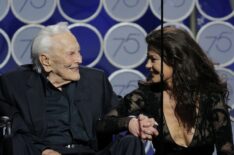Catherine Zeta-Jones
Credits

Today With Jenna & Friends
Guest
Show
2025

Live with Kelly and MarkStream
Guest
Talk
2023

Royal Carols: Together at Christmas 2022
Narrator
Show
2022

National Treasure: Edge of HistoryStream
Actor
Billie
Series
2022

WednesdayStream
Actor
Morticia Addams
Series
2022

GMA3: What You Need to Know
Guest
Show
2020

GMA3
Guest
Show
2020

Prodigal SonStream
Actor
Dr. Vivian Capshaw
Series
2019

Prodigal SonStream
Guest Star
Dr. Vivian Capshaw
Series
2019

The Kelly Clarkson ShowStream
Guest
Talk
2019

Access Daily
Guest
Talk
2019

Today With Hoda & Jenna
Guest
Show
2019

Today 3rd Hour
Guest
Show
2018

Access
Guest
Show
2017

Casa Zeta-Jones
Guest
Show
2017

David Jason: My Life on Screen
Guest
Show
2017

Krimisommer
Actor
Cathleen Hostetler
Show
2017

Live with Kelly and Ryan
Guest
Talk
2017

Feud: Bette and JoanStream
Actor
Olivia de Havilland
Docudrama
2017
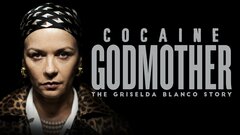
Cocaine GodmotherStream
Actor
Griselda Blanco
Movie
2017

Celebrity PageStream
Guest
News
2016

Dad's Army
Actor
Rose Winters
Movie
2016

The Late Show With Stephen ColbertStream
Guest
Talk
2015

Celebrated
Self
Show
2015

Wogan: The Best Of
Guest
Show
2015

Late Night With Seth MeyersStream
Guest
Talk
2014

The Oscars
Music Performer
Show
2013

Broken City
Actor
Cathleen Hostetler
Movie
2013

Side EffectsStream
Actor
Dr. Victoria Siebert
Movie
2013

Red 2Stream
Actor
Katja
Movie
2013

Live! With Kelly and Michael
Guest
Talk
2012

Entertainment Studios.TV
Guest
Show
2012

Project Runway All Stars
Judge
Show
2012

Playing for Keeps
Actor
Denise
Movie
2012

Rock of Ages
Actor
Patricia Whitmore
Movie
2012

Lay the Favorite
Actor
Tulip Heimowitz
Movie
2012

Dish NationStream
Guest
Talk
2011

ES.TV
Guest
Show
2009

Late Night With Jimmy Fallon
Guest
Talk
2009

The ReboundStream
Actor
Sandy
Movie
2009

Hollywood Singing and Dancing: A Musical History
Actor
Movie
2008

Today With Kathie Lee & Hoda
Guest
Show
2007

The Graham Norton ShowStream
Guest
Talk
2007

No Reservations
Actor
Kate Armstrong
Movie
2007

Death Defying Acts
Actor
Mary McGarvie
Movie
2007

Rachael Ray Show
Guest
Talk
2006

Made in Hollywood
Guest
Series
2005

The Legend of ZorroStream
Actor
Elena de La Vega
Movie
2005

The TerminalStream
Actor
Amelia Warren
Movie
2004
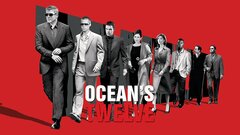
Ocean's TwelveStream
Actor
Isabel Lahiri
Movie
2004

The Ellen DeGeneres Show
Guest
Talk
2003

Jimmy Kimmel Live!Stream
Guest
Talk
2003

Sinbad: Legend of the Seven SeasStream
Voice
Marina
Movie
2003

Intolerable CrueltyStream
Actor
Marylin
Movie
2003

Michael Douglas and Catherine Zeta-Jones: Hollywood's Hottest Couple
Actor
Show
2002

ChicagoStream
Actor
Velma Kelley
Movie
2002

Live With Regis and Kelly
Guest
Show
2001

America's SweetheartsStream
Actor
Gwen Harrison
Movie
2001

High FidelityStream
Actor
Charlie Nicholson
Movie
2000

TrafficStream
Actor
Helena Ayala
Movie
2000

The Daily Show With Jon StewartStream
Guest
Talk
1999

Young Indiana Jones and the Daredevils of the Desert
Actor
Maya
Movie
1999

EntrapmentStream
Actor
Virginia Baker
Movie
1999

The HauntingStream
Actor
Theo
Movie
1999

Kickin' It: With Byron Allen
Guest
Show
1998
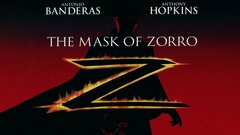
The Mask of ZorroStream
Actor
Elena Montero/Elena Murrieta
Movie
1998

The ViewStream
Guest
Talk
1997

Titanic
Actor
Show
1996

Catherine the Great
Actor
Catherine
Show
1996

Catherine the Great
Actor
Catherine
Movie
1996
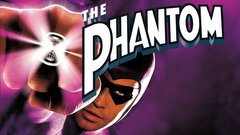
The PhantomStream
Actor
Sala
Movie
1996

The Cinder Path
Actor
Show
1995

Catherine Cookson Dramas
Actor
Victoria Chapman
Show
1995

Blue JuiceStream
Actor
Chloe
Movie
1995

Extra
Guest
News
1994

Le Chemin de braises
Actor
Movie
1994

The Return of the NativeStream
Actor
Eustacia Vye
Movie
1994

Late Show With David Letterman
Guest
Talk
1993

Splitting Heirs
Actor
Kitty
Movie
1993

The Tonight Show With Jay Leno
Guest
Talk
1992

Christopher Columbus: The Discovery
Actor
Beatriz
Movie
1992

The Darling Buds of May
Actor
Mariette
Show
1991

Sheherazade
Actor
Sheherazade
Movie
1990

Les mille et une nuits
Actor
Movie
1989

Good Morning America
Guest
News
1975

Saturday Night LiveStream
Host
Series
1975

TodayStream
Guest
News
1952
News aboutCatherine Zeta-Jones
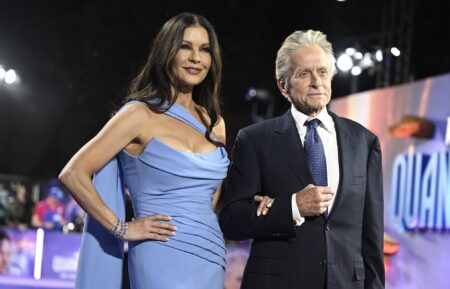
Catherine Zeta-Jones Says Michael Douglas May Return to Acting: ‘Never Say Never’
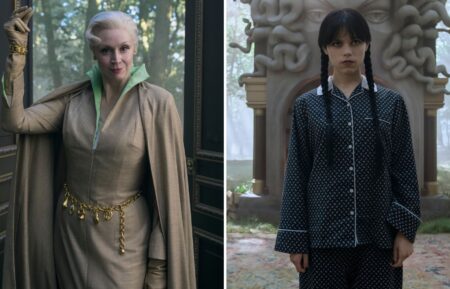
‘Wednesday’: Gwendoline Christie’s Weems Returns as Wednesday’s Spirit Guide in Part 2 Trailer (VIDEO)
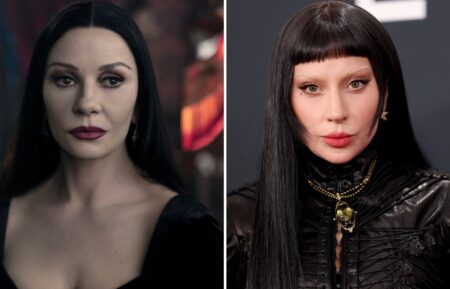
Spoiler Alert
‘Wednesday’: Will Lady Gaga Play Morticia’s Sister Ophelia? What We Know So Far

Catherine Zeta-Jones Makes Rare Comments About Michael Douglas Marriage
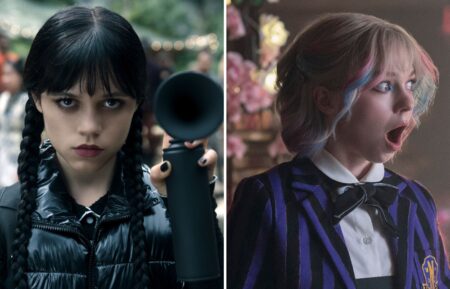
‘Wednesday’ Has to Save Enid in Full Season 2 Trailer & Everything Else We Know So Far
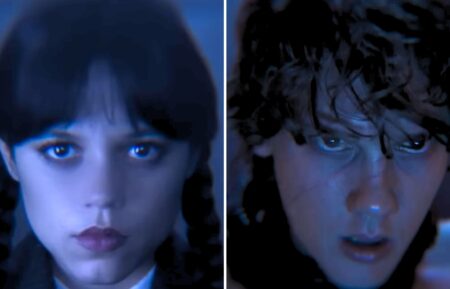
‘Wednesday’ Season 2: Everything We Know So Far
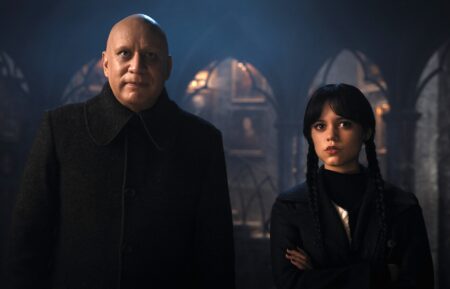
‘Wednesday’: Would You Watch an Uncle Fester Spinoff? (POLL)

Spoiler Alert
‘Wednesday’: 7 Burning Questions We Need Answered in Season 2
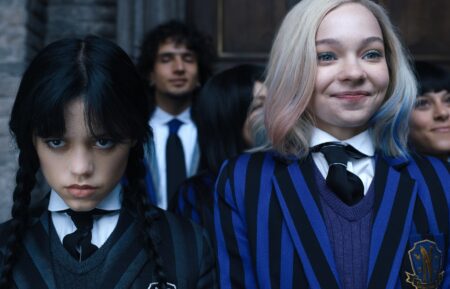
‘Wednesday’ Renewed for Season 2 at Netflix

Even the ‘National Treasure: Edge of History’ Cast Was Surprised by Its Twists & Turns (VIDEO)

Premiere
Catherine Zeta-Jones Knows She’s ‘Really Good’ at Playing Bad in ‘National Treasure: Edge of History’ (VIDEO)

Comic-Con
‘Wednesday’ Spins Deliciously Dark Mystery in New Trailer (VIDEO)
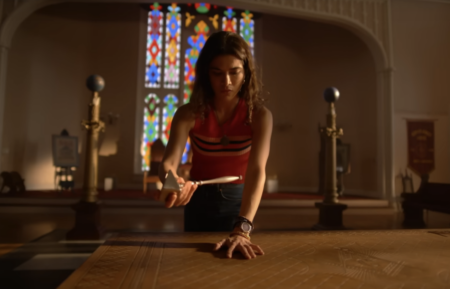
‘National Treasure: Edge of History,’ ‘Willow’ & More Disney+ Trailers From D23 Expo (VIDEOS)

Fall Preview
‘Wednesday’ EPs Say Netflix Series Retains That ‘Addams Family’ Humor
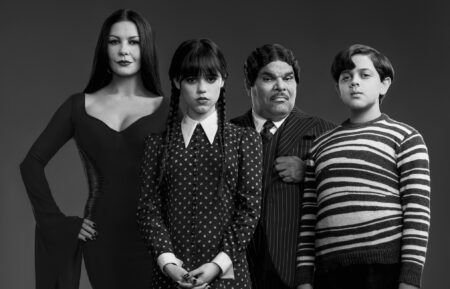
Go Behind the Scenes of ‘Wednesday’ With Tim Burton, Jenna Ortega & More (VIDEO)
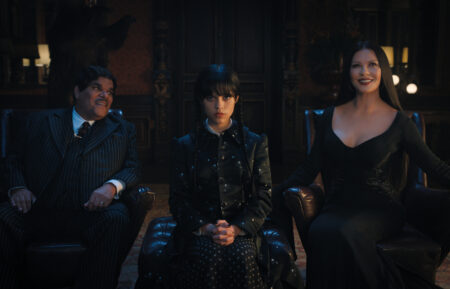
‘Wednesday’ Trailer Introduces Addams Family & Nevermore Academy (VIDEO)
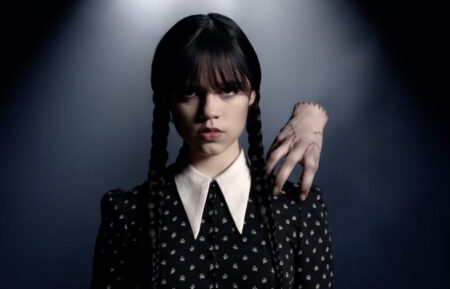
‘Wednesday’: See Catherine Zeta-Jones & Luis Guzmán as Morticia & Gomez Addams (PHOTOS)

‘National Treasure’: Catherine Zeta-Jones Joins the Disney+ Original Series

‘Wednesday’ Netflix Series Adds Catherine Zeta-Jones as Morticia Addams

Spoiler Alert
‘Prodigal Son’: Christian Borle Reveals a Major Change to Malcolm and Pete’s Scene in the Bowling Alley
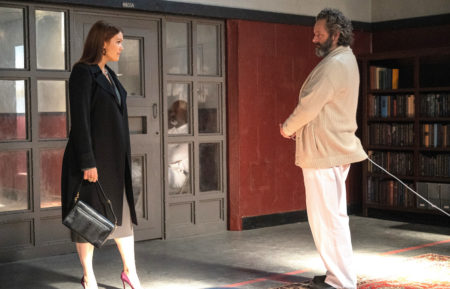
Exclusive
‘Prodigal Son’s Bellamy Young on Jessica’s Worst Nightmare Come True, Gil & More (VIDEO)

Spoiler Alert
‘Prodigal Son’ Puts the Focus on Relationships — Plus, What’s Next?
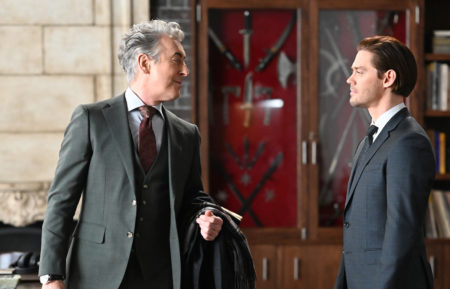
Spoiler Alert
‘Prodigal Son’: How to Get Away With Murder? (RECAP)

Q&A
‘Prodigal Son’ Guest Star Alan Cumming on Malcolm vs. the MindSleuth

‘Prodigal Son’: Simon Hoxley Arrives in New York — and Visits Claremont (PHOTOS)

Q&A
‘Prodigal Son’ Star Tom Payne Explains Why Hoxley Presents a Major Challenge for Malcolm

The Murderous Whitlys of ‘Prodigal Son’ Contend With Simon Hoxley in Midseason Return (VIDEO)
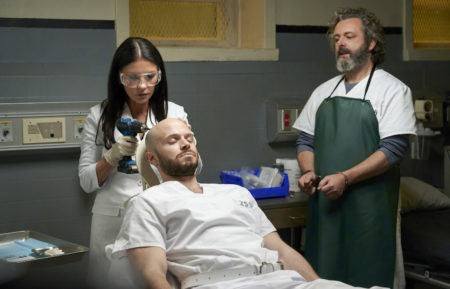
Q&A
‘Prodigal Son’ Bosses Preview Profiler vs. Profiler & Martin Meeting His Match
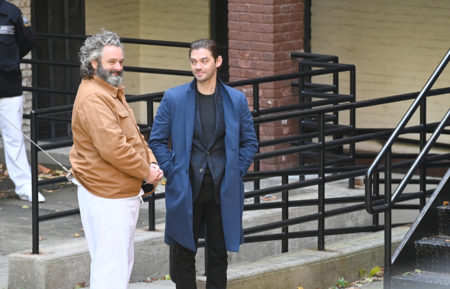
Preview
‘Prodigal Son’: Tom Payne Teases Its ‘Weird, Wonderful, Bonkers’ Return

‘Prodigal Son’ Adds Catherine Zeta-Jones as Claremont Doctor in Season 2
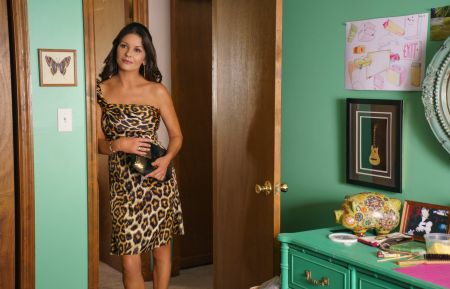
Q&A
Catherine Zeta-Jones Teases ‘Queen America’ Finale & Hopes for Season 2

TV News Roundup: ‘Broad City’ & ‘Queen America’ Trailers, Vince Vaughn on Netflix (VIDEO)
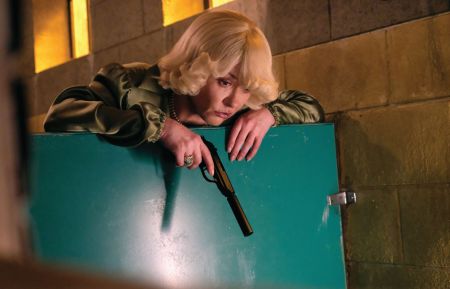
Q&A
‘Cocaine Godmother’: Catherine Zeta-Jones Spills on Playing Griselda Blanco

First Look: Catherine Zeta-Jones Plays Ruthless Drug Lord in ‘Cocaine Godmother’
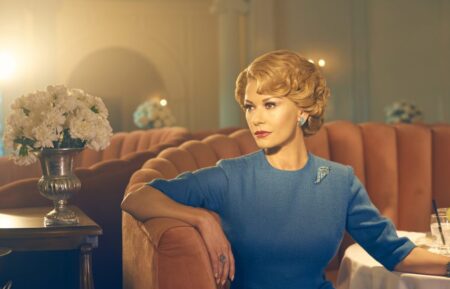
Catherine Zeta-Jones Talks Playing Hollywood Legend Olivia de Havilland in ‘Feud: Bette and Joan’





















